[Startup Bharat] How a 23-year-old entrepreneur built a 2G-based food delivery business in Kashmir
Srinagar-based Gatoes runs a food and grocery delivery service that can run on 2G. In 10 months, the bootstrapped startup has delivered 2.5 lakh orders and hit Rs 10 crore in GMV.
Gatoes founder Jibran Gulzar is 23. He graduated with a computer science degree from Chandigarh University last year, and harboured dreams of pursuing a master’s programme in blockchain.
However, things turned out differently. “Career prospects are different for people here. While growing up, we’re told that our lives are limited. You have to become responsible even before you can,” he tells YourStory.
To put things in context, Jibran hails from Jammu and Kashmir — a state plagued by political instability, adverse climatic conditions, low technological adoption, huge unemployment, and sometimes, even zero connectivity (courtesy internet shutdowns).
Hence, starting up in J&K meant having to address some fundamental problems.
Gatoes, which Jibran founded in February 2020, began with the most basic one — how to build a food delivery platform on a 2G network?
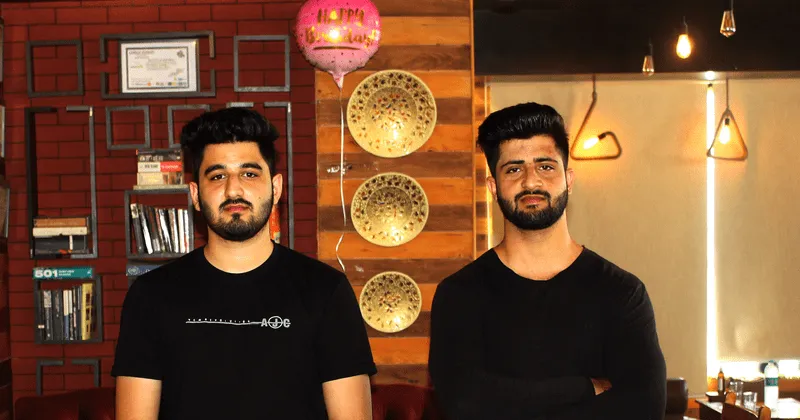
Gatoes founder Jibran Gulzar (L) and COO Tofail Akram
He shares, “We talked to hundreds of developers to make a food delivery app work on 2G. We were trying to pull something out of the impossible. Very few startups in the Kashmir Valley last more than a year.”
Jibran and his 100-member team at Gatoes have managed to build a foodtech startup that claims to have become the first internet business in J&K to cross $1 million GMV (in May) . All this, while being bootstrapped and supported only by friends and family.
The Srinagar-based startup has delivered over 2.5 lakh orders in the last 10 months across Jammu, Ladakh, Anantnag, Baramulla, Bhaderwah, Udhampur, Budgam, and Chenab Valley. These are areas that are not served by foodtech giants like Zomato and Swiggy.
“We are creating demand for hyperlocal platforms. We have pushed ourselves into the system and introduced Kashmiri society to the concept of food delivery. When Zomato and Swiggy launch here, it'll be hard for them,” says the founder.
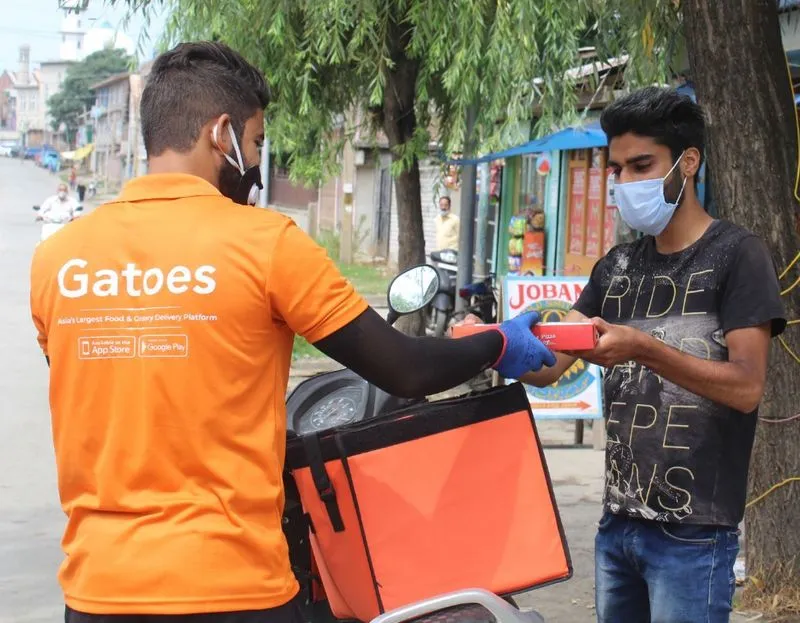
Gatoes has an in-house team of 200+ delivery riders
What Gatoes offers - a Swiggy on 2G
Gatoes is primarily an app-based food delivery platform. It has tied up with over 2,000 local restaurants in seven districts in the state.
It is delivering about 1,000 orders per day and the average order value stands at Rs 450, which is "higher than you see in Delhi", Jibran says.
Gatoes claims that its prices for customers and the commissions it charges restaurants are lower than other foodtech apps. "We are creating demand in the market. Because in Kashmir today, only 5-6 percent people pay for online services," Jibran reveals.
In June, Gatoes also added a B2B grocery delivery vertical for restaurant partners, merchants, and other wholesale buyers. Because there aren't too many grocery stores in Srinagar, people usually take long bus/car rides to shop for essentials.
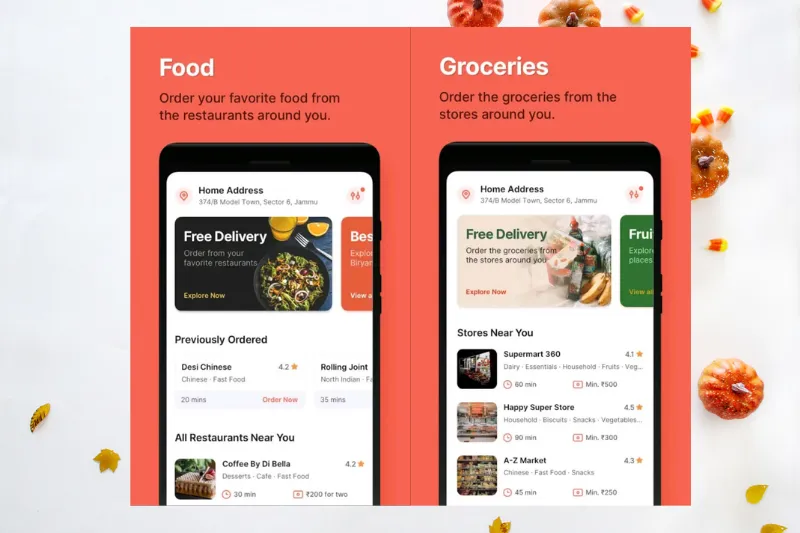
Gatoes has delivered 2.5 lakh orders to date
Gatoes wants to solve this need gap.
Jibran says, "In Kashmir, 99 percent of the households order groceries worth Rs 10,000-15,000 at the start of every month. Unlike in Delhi or Chandigarh, where grocery orders are placed once or twice a week. Kashmiris stock up because they don't know when they might get locked in due to the political climate."
To enable more bulk purchases for merchants (who in turn can sell to end customers), Gatoes has entered into strategic partnerships with BharatX, Razorpay, and Paytm to provide EMIs and other flexible payment options for groceries.
Even though grocery sales could eventually command a bigger share of the Gatoes pie, currently food orders constitute 90 percent of it.
The founder says, "We have reduced our food delivery window from 65 minutes to 45 minutes and are trying to bring it down further to 30 minutes. However, roads in Srinagar are difficult to operate in. Sometimes there's snow, and sometimes the police make it difficult for riders."
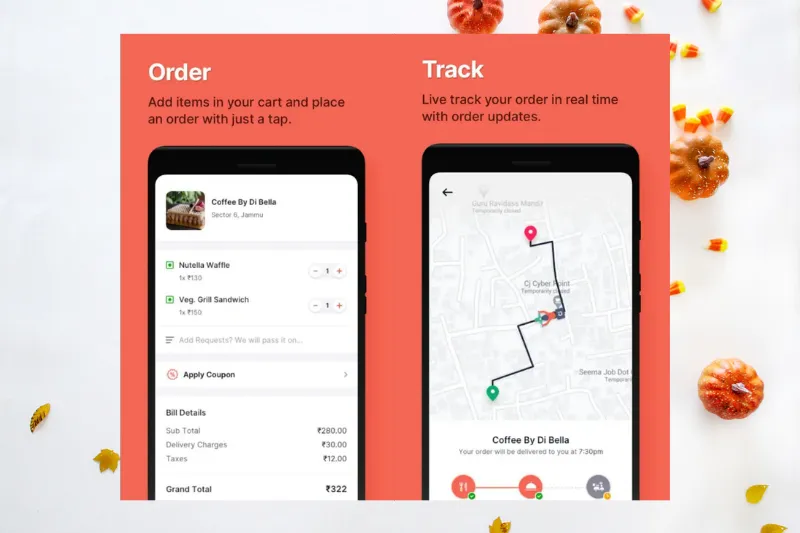
Gatoes has tied up with over 2,000 local restaurants in Kashmir
Growing to 55K users and 10 Cr GMV
Since October 2020, Gatoes has acquired over 55,000 users, and is getting 5,000 new sign-ups every week. The growth has entirely been driven via word of mouth, which according to the founder, “works very well in Kashmiri society”.
Interestingly, 55-60 percent of its users are women who are traditionally confined to the four walls. “It could even be higher because a lot of women use their father’s or brother’s phones to place orders. Some of them order every day," claims the founder.
The startup has also created a network of 200+ riders, and trained them in-house. Gatoes is ploughing back 95 percent of the commissions into the logistics division. Its target is to deliver 5,000 orders per day in Srinagar where order density is the highest.
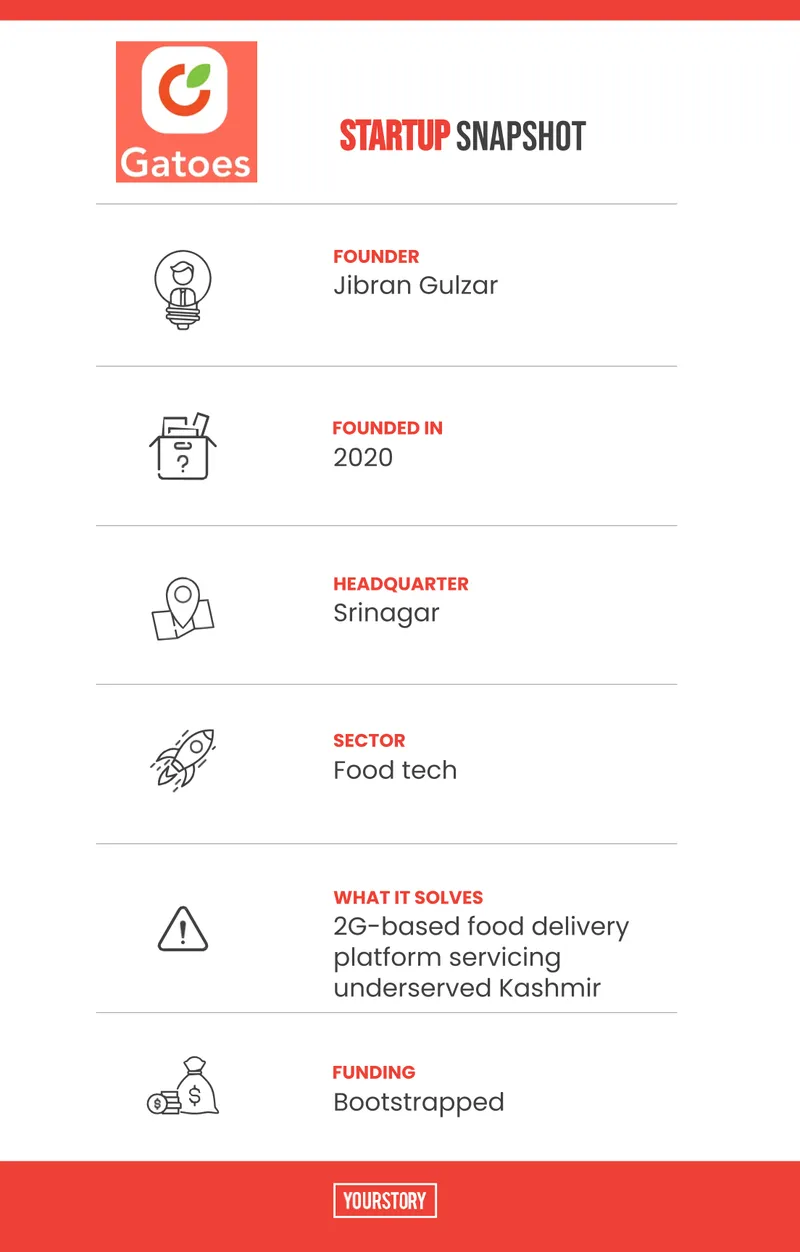
Gatoes has crossed Rs 10 crore in GMV, and is aiming to grow 5X to surpass the Rs 50 crore GMV mark by March 2022.
Jibran shares,
“The second lockdown boosted our growth tremendously. People just didn’t want to go out. And we penetrated into their houses and showed them a product that can change their lives.”
“Today, our GMV is more than what Foodpanda had in Delhi,” he states.
Gatoes has also started pilots in underserved Tier II and Tier III towns of Punjab and Haryana. Its goal is to expand pan India after it gets funding.
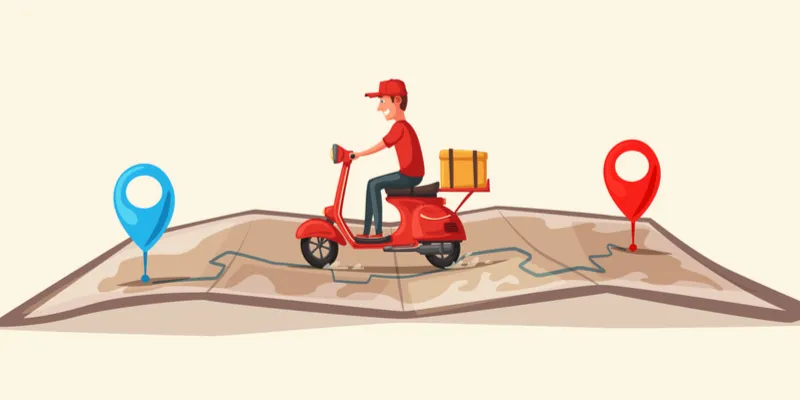
India's foodtech market is estimated to be worth $8 billion by 2022
Funding challenges and future roadmap
Unlike the rest of India that is flush with venture capital right now, the funding landscape in Kashmir is bleak. Jibran explains why.
He says,
“Investors are sceptical about investing in Kashmiri startups because they don’t know where their money will go. It is very difficult to run a business here. Kashmir is unstable not just politically but also weather-wise, which makes the last mile a challenge. Then there is labour crisis. You can’t get staff from outside to build a team here.”
Gatoes is looking to raise an institutional round to expand to new territories. “That will happen after we have built a trusted brand and are in the mainstream,” Jibran notes.
He further shares that the angel round raised by FastBeetle (a Srinagar-based courier logistics service) in May is a ray of hope for all startups in the Valley. “It was a breakthrough in Kashmir’s startup circuit, and can change things for many of us,” Jibran says.
Gatoes operates in an online food delivery market that is poised to grow to $8 billion by 2022, according to a BCG-Google report. The sector is one of the fastest growing and also among the highest funded this year. Add to that, Zomato’s successful IPO has generated an overall positive sentiment about foodtech in India.
Jibran sums up the opportunity by saying, “We have many disadvantages to look at. But we’re ready. As the youth of Kashmir, we have a huge responsibility towards our people. And we are trying to change the trend.”
Edited by Teja Lele


![[Startup Bharat] How a 23-year-old entrepreneur built a 2G-based food delivery business in Kashmir](https://images.yourstory.com/cs/2/dc9aa1302d6c11e9aa979329348d4c3e/Gatoes-1628669312070.png?mode=crop&crop=faces&ar=2%3A1&format=auto&w=1920&q=75)







